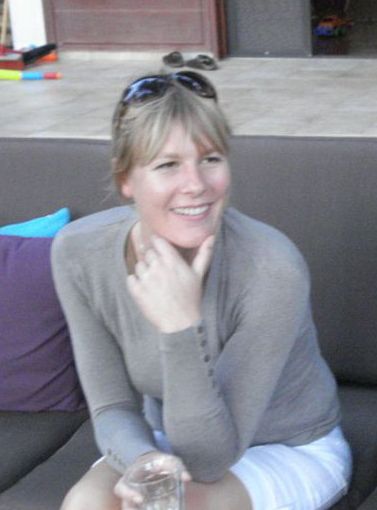Podcast: Play in new window | Download
Subscribe: Apple Podcasts | RSS
Dr. Roshan Cools is a Professor of Cognitive Neuropsychiatry in the Department of Psychiatry of the Radboud University Nijmegen Medical Centre and a Principal Investigator of the Donders Institute for Brain, Cognition and Behaviour (Centre for Cognitive Neuroimaging) in the Netherlands. She received a Masters degree in Experimental and Neuropsychology from the University of Groningen in the Netherlands as well as a MPhil degree and PhD in Experimental Psychology from the University of Cambridge. Afterward, she worked as a Junior Research Fellow at St. John’s College and the Royal Society Dorothy Hodgkin Postdoctoral Research Fellowship at the University of Cambridge. She traveled to the University of California, Berkeley for a postdoctoral fellowship and then served briefly as a Royal Society University Research Fellow back at the University of Cambridge before accepting her position at the Donders Institute and the Radboud University in nijmegen. She has received a number of personal awards, including the James McDonnell Scholar Award (2012) and the Young Investigator Award of the Cognitive Neuroscience Society (2012). Roshan is with us today to tell us all about her journey through life and science.
People Behind the Science Podcast Show Notes
Life Outside of Science
Outside of the lab, Roshan spends her time outdoors rowing, surfing, biking, and hiking. Visiting with family and taking her kids out on outings to the playground or the zoo are also at the top of her leisure time activity list.
The Scientific Side
Roshan studies willpower and cognitive control. Specifically, she wants to know how our brain helps us exert willpower, what happens when willpower goes wrong like in ADHD or addiction, and how can we improve willpower with therapeutics, psychotherapy, or other rewards.
A Dose of Motivation
“The most important characteristic of a successful scientist is their resilience.” by Trevor Robbins, one of Roshan’s academic mentors.
What Got You Hooked on Science?
During Roshan’s childhood, dinner table conversations about the brain, dopamine, and the role of dopamine in schizophrenia were common in her house since her father was a brain scientist. She was absolutely fascinated by the question of how people with schizophrenia could see or hear things that weren’t actually there.
The Low Points: Failures and Challenges
Applying for grants has been a big challenge. She has been applying for European Research Council (ERC) grants for a while and has been repeatedly rejected without peer feedback which has been really frustrating. Recently, Roshan put together a proposal and had many colleagues read it, and they all thought the grant was great, but it was still rejected without feedback.
A Shining Success!
Recently, Roshan gave a lecture to a group of young children about her work. It was challenging to prepare a presentation that would convey to that age group what they did and why it was important, but it was an exciting success. Connecting with the public is so important for her, and she has found that talking to people is wonderful for helping her ask questions with her science that are relevant to the world.
Book Recommendations
When Nietzsche Wept: A Novel of Obsession by Irvin Yalom
Most Treasured Travel
Roshan spent three years at Berkeley for postdoctoral research, and it was the perfect balance of work and play. It was an incredibly academically inspiring place with many wonderful people and a lot of great opportunities to play outside. Berkeley also had great energy since it is so close to the innovation culture of Silicon Valley.
Quirky Traditions and Funny Memories
At various international conferences, Roshan remembers going to the celebrations or dances on the last day of the conference and seeing scientists dancing (perhaps badly) and just being really goofy. She also brought her lab in Holland out to Berkeley for research, and they went out on a surfing trip while there. It was very funny for her to watch them try to surf.
Advice For Us All
Accept what is beyond your control, change what you can control, and know the difference between these two.
Guest Bio
Roshan’s research focuses on cognition, the ultimate function of the brain, with an overarching aim to advance the growing science of behavioural change by predicting, preventing, and personalizing (pharmaco) treatment of cognitive and motivational deficits in both healthy individuals and a range of neuropsychiatric (and neurological) disorders, such as ADHD and addiction. Specifically, she studies motivational and cognitive control and the critical role of the major ascending neuromodulators dopamine and serotonin. She combines her basic science expertise with societal interests, evidenced by her membership of the Advisory Council for Science and Technology Policy (AWT), which advises the Dutch government and parliament on policy in the areas of scientific research, technological development and innovation. I am also a board member of the Rathenau Institute, which promotes the formation of political and public opinion on science and technology.”

Leave a Reply